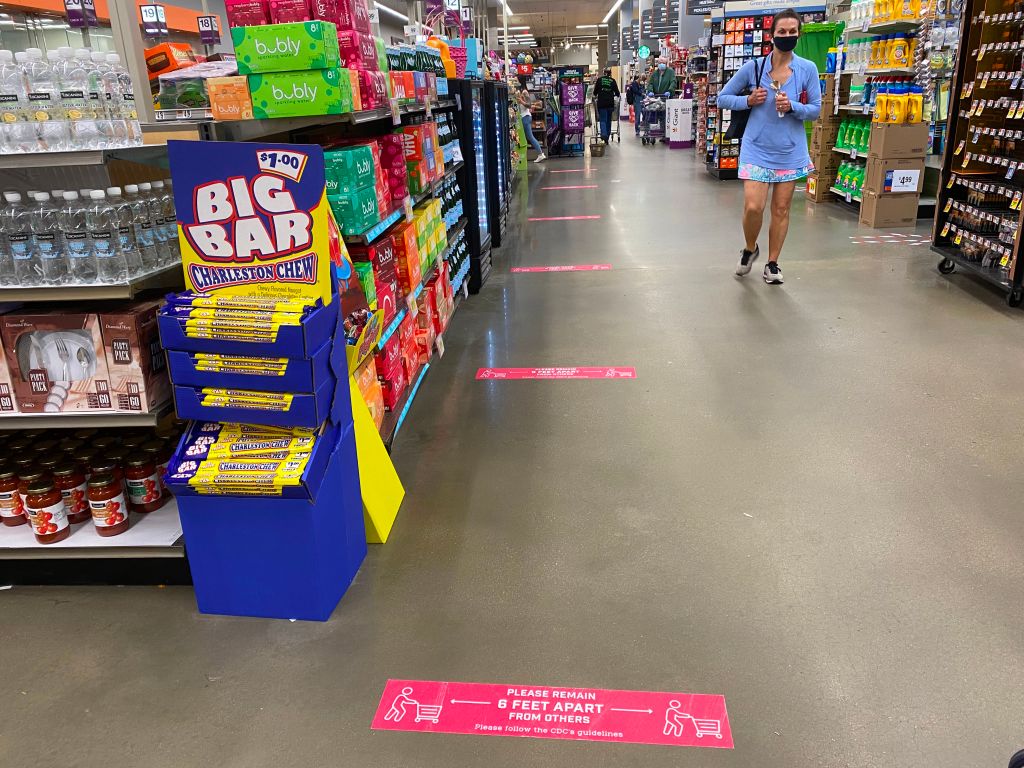You don't need to obsessively disinfect your groceries, and other coronavirus tips from experts


A free daily email with the biggest news stories of the day – and the best features from TheWeek.com
You are now subscribed
Your newsletter sign-up was successful
Grocery shopping is one of the few things everyone is still doing in the time of COVID-19 social distancing. Whether you order online or shop in a store, you eventually come in contact with the food and toiletries — but "don't drive yourself crazy disinfecting your groceries," writes NPR's Maria Godoy, citing virologists, infectious disease specialists, and food safety experts.
No matter what that family doctor in Michigan advised in his video, "all of the experts we spoke with say that disinfecting and hand-washing every last item in your grocery haul is really not necessary," Godoy reports. "You might find it comforting to know that none of these experts are doing this themselves." There's a very small chance you could contract the coronavirus from touching a package then your face, but "the majority of transmission is probably going to be from respiratory droplets, which you're exposed to when you're around other people," says Angela Rasmussen, a Columbia University virologist.
You should shop alone, avoid crowded stores, sanitize your cart, stay six feet from fellow shoppers, and get in and out of the store as quickly as possible, but your best bet to avoid contamination from the groceries themselves is washing your hands with soap and water after shopping, again after unpacking the groceries, and before preparing the food and eating. Gloves aren't necessary at the store, but do wear a mask.
The Week
Escape your echo chamber. Get the facts behind the news, plus analysis from multiple perspectives.

Sign up for The Week's Free Newsletters
From our morning news briefing to a weekly Good News Newsletter, get the best of The Week delivered directly to your inbox.
From our morning news briefing to a weekly Good News Newsletter, get the best of The Week delivered directly to your inbox.
"Time is really on your side here," said Dr. David Aronoff, director of the Division of Infectious Diseases at Vanderbilt University Medical Center. "After 24 hours, the vast majority of virus is no longer infectious," and after 72 hours, there's almost no trace of the virus on most surfaces. You can leave nonperishable food out for 24 hours before putting it away, though it's good practice to wipe down countertops where you unpacked the groceries. Read more expert advice on how to pay, whether to change clothes, and other tips at NPR.
A free daily email with the biggest news stories of the day – and the best features from TheWeek.com
Peter has worked as a news and culture writer and editor at The Week since the site's launch in 2008. He covers politics, world affairs, religion and cultural currents. His journalism career began as a copy editor at a financial newswire and has included editorial positions at The New York Times Magazine, Facts on File, and Oregon State University.
-
 The ‘ravenous’ demand for Cornish minerals
The ‘ravenous’ demand for Cornish mineralsUnder the Radar Growing need for critical minerals to power tech has intensified ‘appetite’ for lithium, which could be a ‘huge boon’ for local economy
-
 Why are election experts taking Trump’s midterm threats seriously?
Why are election experts taking Trump’s midterm threats seriously?IN THE SPOTLIGHT As the president muses about polling place deployments and a centralized electoral system aimed at one-party control, lawmakers are taking this administration at its word
-
 ‘Restaurateurs have become millionaires’
‘Restaurateurs have become millionaires’Instant Opinion Opinion, comment and editorials of the day
-
 TikTok secures deal to remain in US
TikTok secures deal to remain in USSpeed Read ByteDance will form a US version of the popular video-sharing platform
-
 Unemployment rate ticks up amid fall job losses
Unemployment rate ticks up amid fall job lossesSpeed Read Data released by the Commerce Department indicates ‘one of the weakest American labor markets in years’
-
 US mints final penny after 232-year run
US mints final penny after 232-year runSpeed Read Production of the one-cent coin has ended
-
 Warner Bros. explores sale amid Paramount bids
Warner Bros. explores sale amid Paramount bidsSpeed Read The media giant, home to HBO and DC Studios, has received interest from multiple buying parties
-
 Gold tops $4K per ounce, signaling financial unease
Gold tops $4K per ounce, signaling financial uneaseSpeed Read Investors are worried about President Donald Trump’s trade war
-
 Electronic Arts to go private in record $55B deal
Electronic Arts to go private in record $55B dealspeed read The video game giant is behind ‘The Sims’ and ‘Madden NFL’
-
 New York court tosses Trump's $500M fraud fine
New York court tosses Trump's $500M fraud fineSpeed Read A divided appeals court threw out a hefty penalty against President Trump for fraudulently inflating his wealth
-
 Trump said to seek government stake in Intel
Trump said to seek government stake in IntelSpeed Read The president and Intel CEO Lip-Bu Tan reportedly discussed the proposal at a recent meeting
